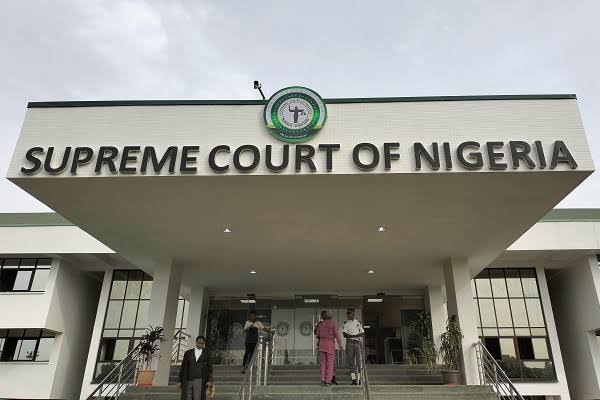- dismisses suit by 16 State Governors
From Godwin Tsa, Abuja.
The Supreme Court has dismissed the suit instituted by 16 states of the federation against the Attorney-General of the Federation, challenging the constitutionality of the acts establishing the Economic and Financial Crimes Commission and two other anti-graft agencies.
In the dismissed suit, the plaintiff states had through their Attorneys General argued that Section 12 of the 1999 Constitution, as amended, was not complied with before the EFCC began its operations.
They noted that the Supreme Court, in Dr Joseph Nwobike Vs Federal Republic of Nigeria, had held that it was a UN Convention against corruption that was reduced into the EFCC Establishment Act and that in enacting this law in 2004, the provision of Section 12 of the 1999 Constitution, as amended, was not followed.
They argued that,argued that Section 12 of the 1999 Constitution, as amended, was not complied with before the EFCC began its operations.
According to the plaintiffs, it was a mandatory provision of the Constitution that the majority of the Houses of Assembly of States must vote and agree to the passage of the EFCC Act, insisting that it was not something that only the National Assembly was legally allowed to do.
The plaintiffs maintained that since due process was not followed before the EFCC Establishment Act was enacted, it cannot be applicable in states that never approved of it, in accordance with provisions of the 1999 Constitution, as amended.
However in a unanimous Judgment on Friday, a seven-member panel of the apex court led by Justice Uwani Abba-Aji, held that “the EFCC Act, which is not a treaty but a convention does not need the ratification of the houses of assembly.”
The court held that the EFCC Establishment Act did not require any form of ratification by the Houses of Assembly of the 36 states of the federation since it was not a treaty but a convention.
“A convention would have been ratified by member states, and the National Assembly can make laws from it, which will be binding on all the states in Nigeria as it is in the case of EFCC Establishment Act.
“In a country like Nigeria, the federating units do not have absolute power. The NFIU guideline is to present a benchmark and not to control the funds.
“Where an act of law is made by NASS like the NFIU and its guidelines, it is binding on all. Any act that has been competently enacted by the NASS cannot be said to be inconsistent.
“Where the NASS has enacted several laws on corruption, money laundering, etc., no state has the right to make law to compete with them. The investigative power of the EFCC cannot be said to be in conflict with legislative powers of the state assembly.
“I must agree with the AGF that the plaintiffs’ argument, that is, the Houses of Assembly of the plaintiffs’ states, is not tenable in law,” the Supreme Court added.
Reacting, the Counsel to Kogi State, Abdulwahab Mohammed, SAN, said, “This is an issue we have raised before the FHC, it was not addressed. We raised it at the Appeal Court and was not addressed. This is going to enrich our jurisprudence. We thank your lordship for hearing us out.”
Representative of the AGF, Rotimi Oyedepo, SAN, said, “We convey our gratitude to the court for your wisdom. Your lordship has permanently settled the legality of the anti-corruption agency in fighting corruption.”
